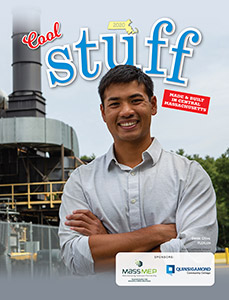Whether they’re straight out of high school or college degree in hand, young people in their teens and 20s are discovering a manufacturing industry that offers stable positions, good pay and benefits, the chance to move up, learning opportunities and — perhaps key to the process — older colleagues interested in helping a younger workforce succeed.
Manufacturing accommodates a variety of backgrounds, from zero experience to skills gained through family businesses, previous jobs, vocational training or degree programs. Either way, newcomers find manufacturing companies are eager to bring them in, provide training and give them leadership responsibilities when they’re ready — resulting in personal rewards and inspiration to go further.
Here are some examples around Maine:
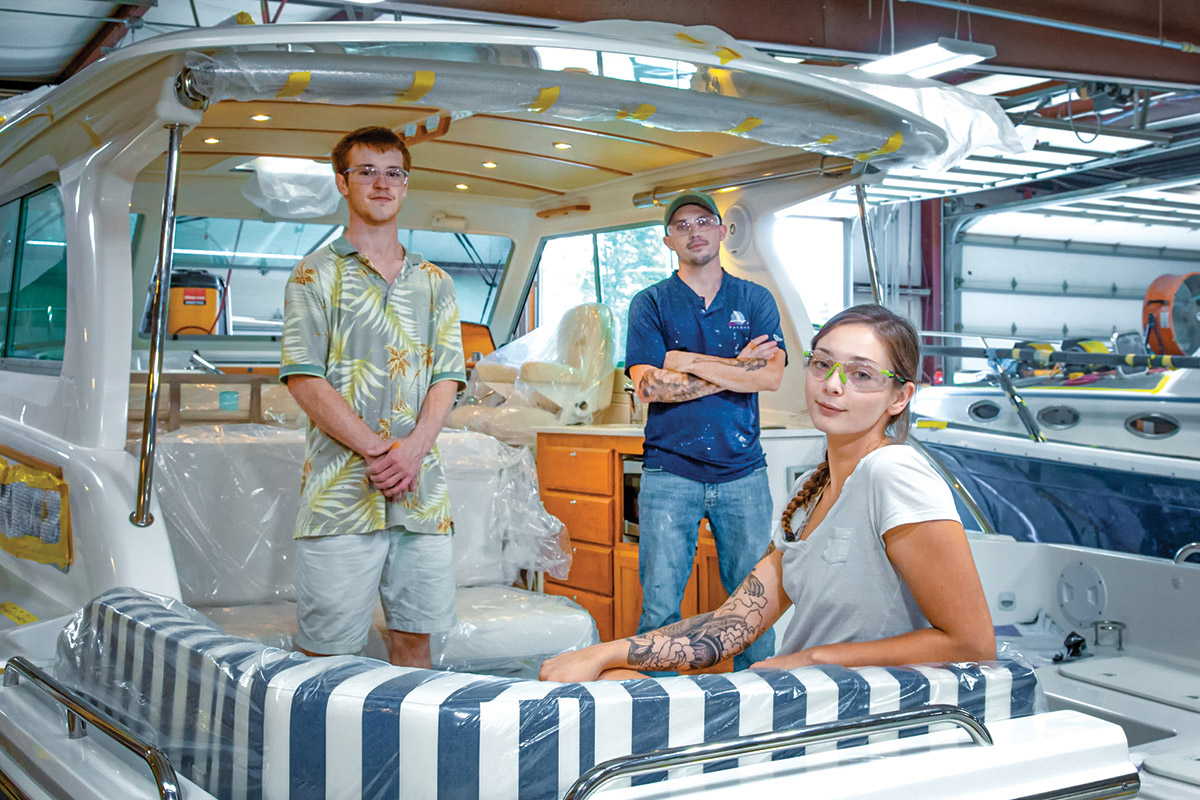
Luke Chadwick, Damien Ball and Haley Follett-Thomas of Back Cove Yachts are part of a workforce that combines younger and more experienced employees.
Back Cove Yachts: 3 Go-Getters
At Back Cove Yachts, a Rockland maker of motor yachts, Damien Ball, 23, is team leader in the lamination shop, making large parts like decks and windshields. Ball began at Back Cove at age 17. The work suits his interests.
“My stepfather has been a fisherman his whole life,” he says. “Pretty much anything to do on the water, I want to be there.”
At Rockland’s Mid-Coast School of Technology, he studied marine technology to learn fiberglass boatbuilding skills. After a couple of early jobs, he heard about Back Cove and applied, attracted to the steady work, pay and benefits. The four-day workweek, with an optional fifth day for overtime pay, was also attractive.
“I have a son who’s 3 years old,” he says. “You can have that full weekend where you can spend time with your family.”
Like Ball, Haley Follett-Thomas, who builds boat furniture, is working her way up.
After high school, she had a variety of jobs. But she wanted something solid.
“I was just ready for something new,” she says. “I never had carpentry experience before this. I threw myself into it and I’m so glad I did, because so I’ve learned so much. It’s an amazing experience to feel I’m learning a new trade that I can take with me.”
“Maine makes great things. Maine workers are known for their work ethic and being on top of everything. Don’t be afraid to try to something you’ve never done before. You have to start somewhere.”
— Haley Follett-Thomas, Back Cove Yachts
Learning hands-on from day one, she’s now confidently building furniture for a variety of models. The encouragement she receives — backed by pay raises — makes her feel recognized, she says.
She also loves being part of a “Maine-made” industry.
“Seeing your handiwork on a Maine-made product is amazing,” she says. Soon to join her first sea trial, she says, “It’s awesome to see a finished product that you’ve put all your effort into, and to say, ‘Wow, I was part of that.’”
Luke Chadwick, who cuts and bonds newly demolded fiberglass parts, also appreciates the chance to learn as he works. Chadwick, 21, has been at Back Cove since 2017.
“I didn’t have much clue on how to use the tools we use here,” he says. “It was ‘learn as you go.’ I’ve moved up and ever since I try to keep doing better and better.”
Chadwick says it’s important to take advantage of the knowledge around him. Like Follett-Thomas, he enjoys seeing the boats shape up. Just as much, he enjoys building his talents.
“I didn’t expect to get into boatbuilding, but it’s working out,” he says. “You get new opportunities, and the pay and benefits are well worth it.”
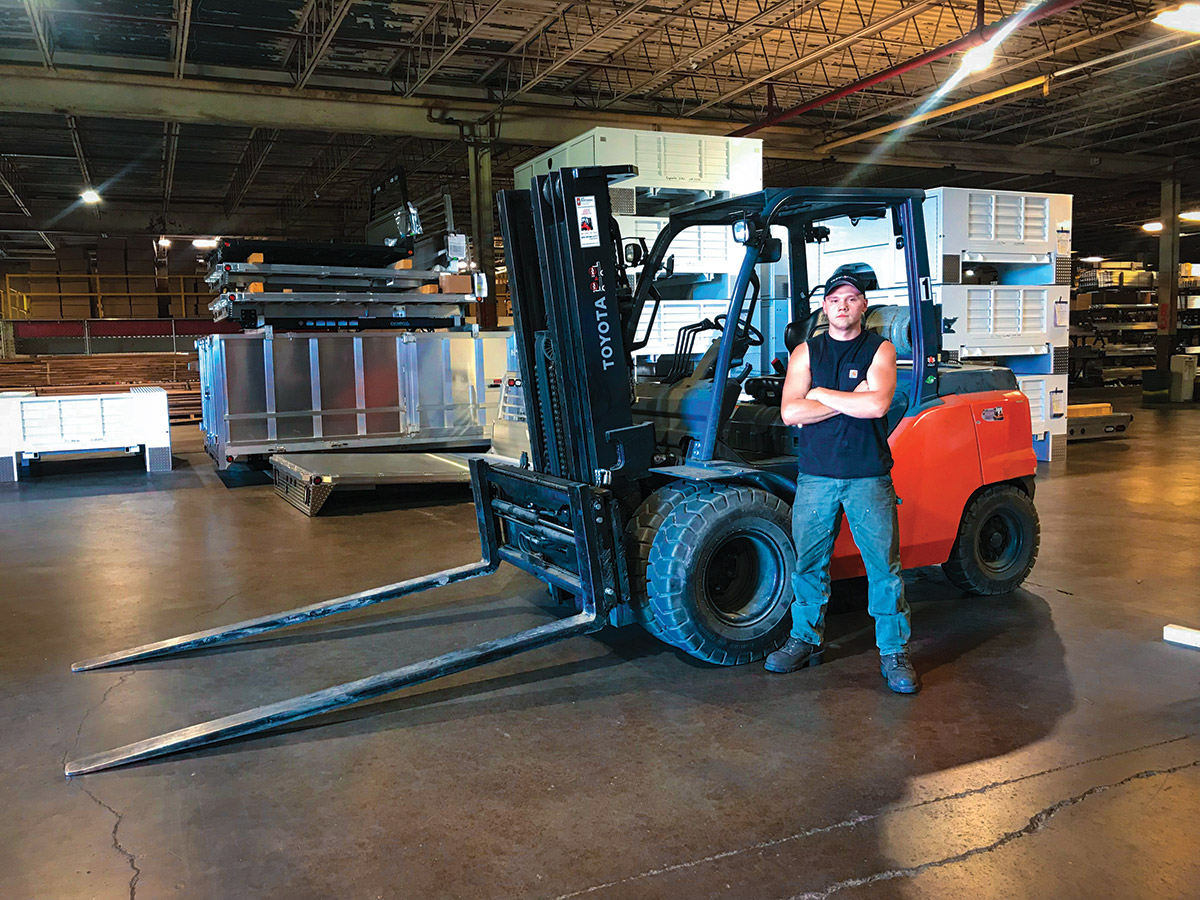
At age 21, Keith Ward already has a thriving career at F3 Manufacturing in Waterville.
F3 Manufacturing: Valuable Skills
“When I started, I didn’t know how to weld or work on a vehicle,” says Justyce St. Clair, 20, a technician at F3 Manufacturing in Waterville, maker of aluminum bodies and accessories for trucks and vans. “I didn’t know how to wire anything. I didn’t know anything.”
St. Clair joined F3 at age 17, starting at the bottom in the finish department and building his skills from there. He learned from co-workers and practiced constantly, picking up skills like fabrication, welding and installations. Pay raises followed.
“I really like how fast-paced it is and how much they expect of you,” he says. “I enjoy working hard. The people I work with and my bosses are awesome. They’ll answer any questions you’ve got.”
For Keith Ward, 21, previous experience growing up on a dairy farm gave him skills that proved valuable.
When looking for work away from the farm, “I said, ‘I’ll never go into manufacturing,’” Ward recalls. “But I went to an interview. It was the best decision of my life. I was just out of high school, owing people money to keep myself afloat. Within the first nine months of being here, I have my first house. It’s been a blessing.”
Ward started in February 2018 in the finish department. But due to his farm work, he was experienced with mechanics, so he moved up as forklift operator.
“I killed it there,” he says enthusiastically, adding that he appreciates the chance to rack up the hours. “I’m always the man they call.”
He particularly likes the company culture.
“Everybody there is a big family,” he says. “Everyone’s got an open mindset. You do the job and they don’t just pay you, they look at you as, ‘This man does a good job.’ If you have initiative, you’ll go far.”
The job opened his own mind: He plans to return to school to study engineering, starting with online and night classes — goals the company supports.
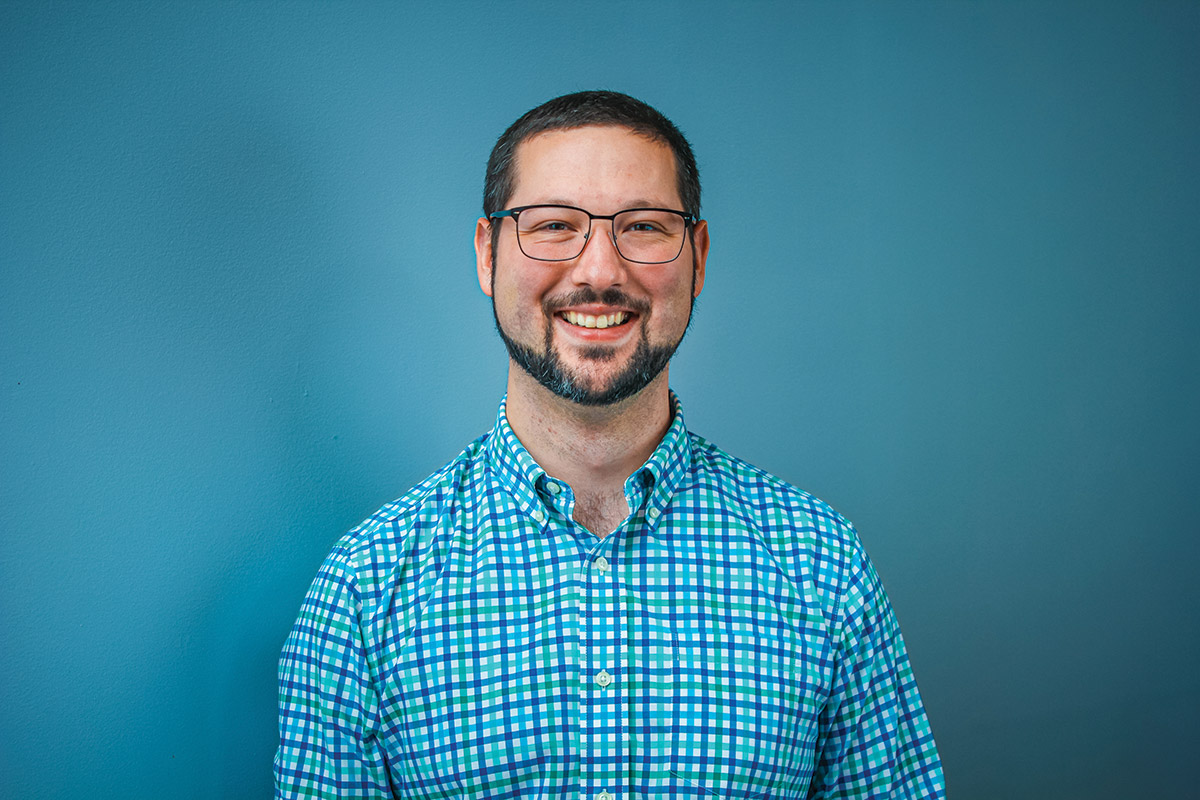
Nick Bull of Mölnlycke
Mölnlycke: Always Learning
Nick Bull, 30, graduated from the University of Southern Maine with a bachelors of science degree in technology management. While in school, he worked as a technician at Lanco Integrated in Westbrook, a global provider of turnkey automated assembly and test systems. After graduation, he moved into engineering and project management at Abbott Labs in Scarborough, a manufacturer of rapid diagnostic products.
“I loved the extremely technical products and processes and my boss there was a real pleasure to work for,” Bull says.
Throughout, he was practicing “lean,” a concept that means creating more value for customers with fewer resources.
“Maine companies and industries are a tight-knit community, so if you’re looking for an opportunity, you’ll find it.”
— Nick Bull, Mölnlycke
A year ago, he joined Mölnlycke, a medical products and solutions company with facilities in Brunswick, as U.S. manufacturing excellence manager.
“In more practical terms, I’m an industrial engineer, optimizing complex processes, systems and organizations for all of the Mölnlycke sites in the U.S.,” he explains.
Over the years, lean has allowed him to work on projects throughout the business, including marketing, finance, purchasing, engineering, manufacturing, regulatory, quality and more.
“I’m a voracious learner and love to apply what I learn to overcome challenges in novel ways,” he says. For example, he uses Scrum, an agile software framework, to improve the way Mölnlycke’s manufacturing teams work.
Developing and coaching people is one of the most enjoyable aspects of his work.
“It’s rewarding to work with people to develop a system for running a business that grows and adapts as the business changes, but even more rewarding when they start to apply their learnings at home and in the community,” he says. “It makes my day when someone says, ‘Hey Nick, I applied that thing you taught us on this thing at home and it’s so much easier now! Thank you!’ It’s also very satisfying that we make amazing health care products that have a big impact on the quality of life of customers.”
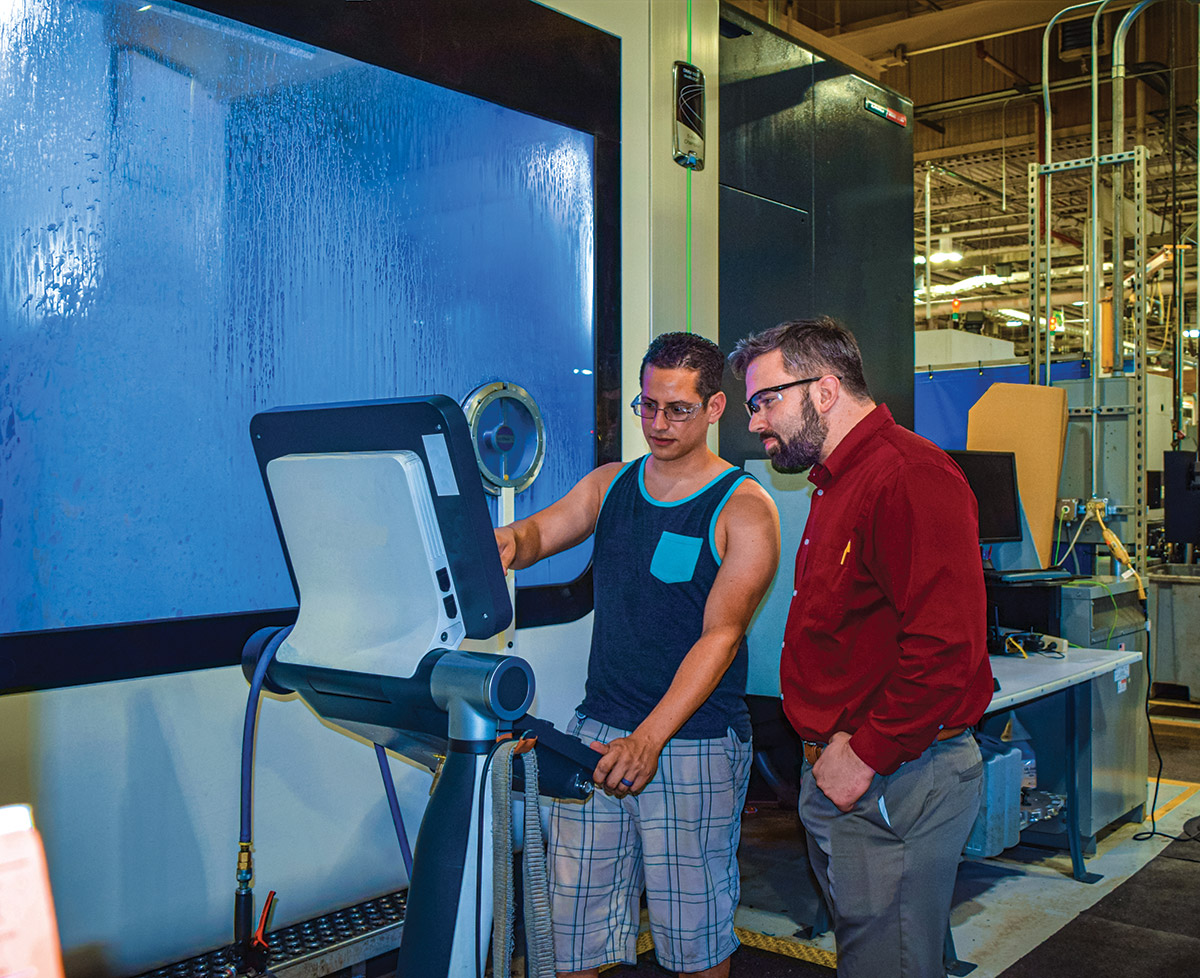
Right: James Brann, 30, a graduate of Rensselaer Polytechnic Institute, “dove right into” a career at Pratt & Whitney and is now a manager.
Pratt & Whitney: Well-Rounded Intro
James Brann, 30, was studying at Rensselaer Polytechnic Institute in Troy, N.Y., when he was selected for an internship at the East Hartford, Conn., headquarters of Pratt & Whitney, an aerospace manufacturer.
“I dove right in,” he recalls. “I ended up with a full-time job offer before I went back to school for my senior year.”
After graduating in 2011, he returned to Pratt & Whitney to take part in its manufacturing engineering development program. This allowed him to gain exposure to different disciplines through rotations through positions like turbine blade manufacturing, mechanical component manufacturing, development engine testing and production readiness.
“You get to see many aspects of the business and become well-rounded, and they work to place you into a full-time position that fits your skill set,” he explains.
Working his way up the ladder, today he’s a manufacturing engineering manager at the company’s 1 million-square-foot North Berwick campus. He heads a team of manufacturing engineers and technicians focused on solving technical problems that arise in manufacturing processes and driving perfect quality at the lowest cost.
“I love new challenges,” he says. “I’m always looking for that next radical solution.”


